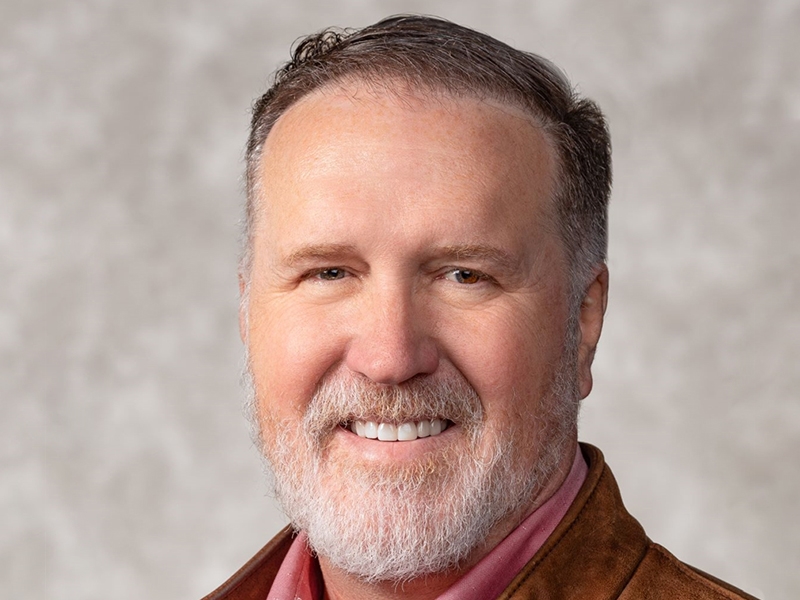
The Rehabilitation Counseling track within the Counselor Education and Supervision Program in the College of Education and Health Professions has a two-decade-long history of national recognition.
The master's degree in counseling with a concentration in Rehabilitation Counseling has consistently been recognized as one of the highest-ranked degrees at the U of A. Recently it was named among the top 20 Best Rehabilitation Counseling tracks in the 2023-2024 edition of U.S. News & World Report's best graduate schools.
The program has grant funding available to train master's level professionals to provide services to people with disabilities. Rehabilitation counselors assist people with disabilities to achieve competitive integrated employment and live independently as full participants in their communities.
A few traineeships are still available for students wanting to enroll in the upcoming 2023 fall semester.
The federal training grants cover graduate students' tuition, said Brent Thomas Williams, an associate professor who has worked in the U of A counseling program for over 20 years. He has devoted his career to advocating for and providing services to persons with disabilities and mentoring future rehabilitation counselors. He has been awarded over $48 million in grant funding and contracts at the U of A to support programs that serve those with disabilities who face barriers in education, employment and independent living.
"It is difficult to overstate the impact of these training grants," Williams said. "By providing an essentially free master's degree in rehabilitation counseling, highly trained professionals are able to offer services to persons with disabilities, many of whom are some of the most marginalized and disenfranchised members of our society."
He said the benefits of assisting those with disabilities in obtaining competitive integrative employment and living independently are far-reaching. "Helping our neighbors participate fully in our communities and realize their full potential greatly reduces their reliance on already over-burdened social programs," Williams said. "It's truly rare that funding has such a transcendent impact on both individuals and society writ large."
The counseling program offers three federal grants to assist students who want to obtain a master's degrees in these Rehabilitation Counseling concentrations:
- M.S. in counseling with an emphasis in psychiatric rehabilitation, to serve persons with psychiatric disabilities. Funding will cover tuition and fees for 48 course credit hours, stipends to assist with school expenses, and student travel to attend a statewide conference. With 21.3% of Arkansans having a mental illness and 6.9% with a serious mental illness, it's crucial to prepare professionals with the knowledge, attitudes and skills to provide quality rehabilitation services to individuals with psychiatric disabilities.
- M.S. in counseling with an emphasis in vocational rehabilitation counseling, to serve persons with a broad continuum of disabilities. Funding covers tuition and fees for 48 course credit hours, stipends to assist with school expenses, and student travel to attend a statewide conference. Through a comprehensive and unique counseling process, rehabilitation counselors help individuals with disabilities set and achieve their personal, career, and independent living goals. They are the bridge between the person and self-sufficiency, allowing them to live on their own, which typically includes securing or returning to productive, meaningful work.
- M.S. in counseling with an emphasis in youth transition in rehabilitation counseling, to serve transition-aged youth with disabilities. This federal grant supports 31 student scholars across three cohorts to complete their master's degrees in vocational rehabilitation counseling, special education or social work. Scholars will have tuition paid, a book stipend and opportunities for travel, and will also earn a Graduate Certificate in Transition Services. The faculty joining together to create this Teaming for Transition: Preparing Youth for Community and Work opportunity believe that preparing scholars in these fields to use evidence-based practices that predict positive post-school outcomes will significantly impact the lives of youth and adults with disabilities.
The U of A counseling program prepares professionals who serve as educators, researchers and community leaders in Northwest Aransas, across the U.S. and internationally.
Those interested in pursuing a master's degree in counseling with a concentration in rehabilitation counseling should contact Brent Thomas Williams at btwilli@uark.edu.
Topics
Contacts
Shannon G. Magsam, director of communications
College of Education and Health Professions
479-575-3138,